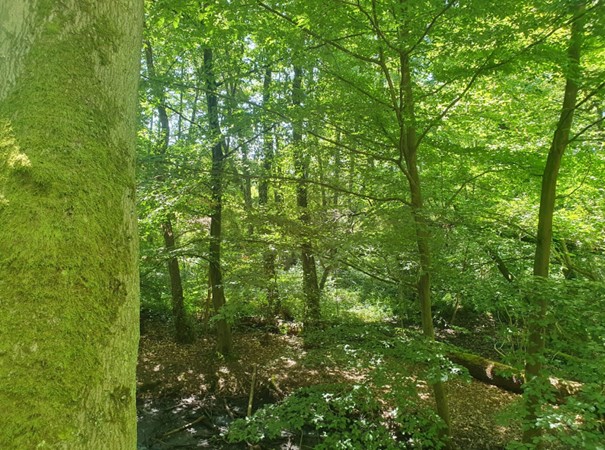An Essay by Tayo Abolarin
Nigeria is an English speaking country located in the western part of Africa and made up of six geo-political zones. Aside from improper waste management and the pollution of water, land and air common to all the geo political zones, each zone faces its own unique environmental issues ranging from drought and desertification in the extreme north to erosions and floods in the southern parts of the country. The interrelationship between the media and addressing social issues including environmental issues cannot be overemphasized. O’Shaughnessy (2008) states that the media shows the norms and realities of a society. Thus, if one wants to study and understand a society, one could turn to its media. They will reveal to us what the society feel, think and how they behave. Thereby, the media can be seen as a tool for creating and enforcing opinions of the society (Ejupi, Siljanovska,Iseni, 2014). With this in view, this article examines environmental journalism in Nigeria as a whole; the scope of environmental journalism Nigeria, its effectiveness so far, responses of NGOs and government to environmental issues in the country, the associated challenges and what can be done to improve its scope. This investigation was done by interviewing 15 environmental communication experts which include environmental Journalists and NGOs across different regions in Nigeria. Findings from the study include that environmental journalism has thrived with a slow pace in Nigeria due to many factors which include lack of funds and lack of access to environmental data. Also, lack of scientific training and education of the journalists has led to the reporting of environmental news as a straight news with low context of environmental science.
Overview of the Nigeria environment and environmental journalism
The natural environment encompasses both abiotic and biotic environment which includes climate, air, land, water, forests, the ecosystem, wildlife etc. Nature according to research by (O’Donnell& Rice, 2008) is ‘anything not made by humankind, domesticated, or cultivated`. Nigeria environment faces critical environment problems which are as a result of human abuse of the environment, and this abuse stems from ignorance of the people, poverty, and overpopulation among other factors. Some of the problems faced by the Nigeria environment are erosion, flooding, drought and desertification, oil pollution, urban decay and squatter settlement, industrial pollution and waste, municipal solid waste , loss of fauna and flora, climate change and ozone depletion.
The Nigeria population according to Wikipedia has been skyrocketing for the last five decades which has further contributed to the rapid degeneration of the environment through the unwise use of the environment by the high population density thereby resulting into grievous impacts on the environment. To this end, there is the high need to make people realize the effect of their unwise use of the environment in a quest to survive in the present times as this would ensure living healthy and not compromising living in the environment in the future (Busari, 2005)
Given that the media plays a major role in serving as a mirror to reflect the society and to make the public accountable for their actions. However, the media tend to select the subject of their coverage on environmental issues based on the journalists areas of jurisdiction. Hasan (2007) in his studies to find out how journalist gives priority to environmental issues write that environmental issues coverage is been reported as a soft news that depicts human interest so as to soften stories.
Ogbogu (2012), Muazu and Ademoyega (2009), and Eze (2011) opines that media houses in Nigeria don’t give prominence to environmental issues, and this is based on the idea that environmental news is not ‘marketable’, hence, news articles in other beats of journalism such as politics, entertainment and economy are published every day while environmental issues in the country are not given priority once the event behind the environmental issues does not evoke human emotions and with this system of reporting, environment issues leads to relegating environmental journalism to the background. They reasoned that this stem as a result of media organizations competing with one another to capture and win the majority available audience attention within the same market. Adding an important stand to this, Gavin (2009) reasoned in his study that enough attention is not been given to environmental issues as it deserve. In his words
‘…Climate change, therefore may not be high enough on media agenda to stimulate the sort of public concern that prompts concerted political action. The media may well continue to focus its attention on health, the economy or crime, thereby drawing public attention from the issue of climate change ́
Gauging the amount of time allocated to environmental issues coverage, Tagbo (2010) also opines that there are no clear working guidelines on how the environment coverage should be covered from the reporters in particular and also from the media houses in general and as a result of this, media houses are not willingly to give adequate training to their journalists in order to improve their skills and stay up to date with the scientific data generated for the environment. Thus, there is no motivation for journalists to cover events relating to the natural environment except when it has to do with tragedy and the angle at which such tragic event would be reported won’t be centralized on the environment beat.
Closely tied to this, Ashong and Uduodo (2007) in their research of media coverage of environmental pollution in the Niger delta region of Nigeria explains that media organizations do not see the need to introduce trainings, fellowships, grants and sponsorship that may motivate the journalist in reporting these environmental issues considering the fact that environmental journalism demands resources as environmental journalism is a broader field of science reporting. Most journalists in Nigeria do not have the necessary skills and education to analyse environmental issues in the scientific perspective, as such they tend to report environmental issues as a straight news thereby not including the effects and repercussions of the environment trends been reported.
Tagbo (2010) gives a more vivid description of this challenge: lack of understanding of the issues of the environment makes it difficult for most African Journalists to do a good job of reporting it, being that the environment involves science. Understaffed newsrooms constitute a big challenge too, for most local journalists, the environment is a complex sciences stories that cannot be properly accommodated in their daily routine because of the deadline culture of their newsroom. According to Nehema Owusu Achiawa, a senior correspondent with a national newspaper. ́we don’t understand the science of it the way scientist do`;
The survey of Nigerian environmental journalists
In the survey conducted for 15 respondents, 11 respondents were environmental communication journalists specializing in different media, while 4 respondents belongs to different NGOs dealing with environmental issues in the country.
Responding to the question on what the environmental concerns in Nigeria are, the respondents listed poor waste management, deforestation, land degradation, pollution(water, land and air), desertification, poor waste management, oil spillage, flooding, sea level rise, erosion, emission of carbon, open defecation, burning of fossil fuel, and climate change as the environment issues that Nigeria is currently facing.
When asked their level of knowledge as regards scientific environmental concerns in Nigeria, 53.0% of the respondents responded ‘exceptionally well’ while 47.0% responded ‘not quite well‘. The respondents strongly agree that Nigerians do not have a good level of scientific environmental knowledge.
Responses obtained from the question on what form of media do most environmental journalism disseminate environmental news to the public,55% respondent claim that it is the online media,27% respondent say that it is the broadcast media while 18% respondents agreed that it is the print media.
When asked the effectiveness of the various media used in disseminating environmental information to the public,45.0% agreed that information disseminated via the broadcast media are effective, 33.0% agreed that the print media are effective in disseminating of environmental information while 22.0% of the respondent say that the online media is effective.
Responding to what form of media is best to disseminate environmental information to the public in Nigeria,46% affirmed that the broadcast media is the best form of media to use in disseminating envy information to the public, 39% stated that the online media is the best form of media to use, while 15% claimed that all forms of media should be explore in dissemination of environmental news to the public.
When asked how the government and NGOs respond to environmental issues in the country, many of the respondents have the same views on how government and NGOs respond to environmental issues. 80% Respondents were quick to affirm that NGOs response to environmental issues in the country have been encouraging and significant while 20% claimed that the government response on environmental issues are significant and encouraging.
The environmental Journalists explained that some of the factors hampering environmental journalism in the country include finance, unavailability of data to back up stories relating to the environment ,the involvement of prominent persons in environmental issues, insecurity in some part of the country, inability of the environment journalist to understand the environmental scientific knowledge and also the notion that environmental news is not marketable due to lack of interest display by the Nigeria populace.
The respondents however feel that the future of environmental journalism in Nigeria is promising in certain things are been put in place. Adding that if the challenges hampering the present day environmental journalism in the country can be eradicated, the future is promising.
What should be done to improve the future of environmental journalism in Nigeria?
- Environmental scientific data should be made readily available and accessible to the environmental Journalists in order to help the publication of environmental news.
- Funds and also training should be made available to environmental journalists to broaden their understanding of the scientific aspect of environmental issues.
- The government should create campaign to sensitized the public on all spheres of environmental issues; the impact of their daily activities on the environment.
- All forms of media should be embrace in the disseminating of environmental information to the public.
- Environmental information should be transcribed and disseminated in different dialects that various member of the society can relate with.
- Policies and implementation should be put in place by the government to tackle environmental issues and erring offenders should be punish.
References
Ashong, C.A. and Uduodo, A.J. (2007) Media coverage of environmental pollution as a factor in agricultural development in Niger Delta. In international journal of communication No.6 May 2007 pp 193-204
Busari, A.T. (2005) Public awareness on environmental issues: A Panacea for sustainable development in International Journal of Environmental Issues vpl.3 No 1 2005,pp 34-41, Ikot Ekpene, Development Universal Consortia
Gavin, N. (2009) Media Coverage Affects Climate Change Perceptions. Retrieved from www.redorbit.com
O’ Donell, C. and Ronald E.R. (2008) Coverage of Environmental Event in US and UK Newspaper: Frequency, Hazard, Specificity and Placement’ International Journal of Environmental Studies,65 (5), 637-695
O ́Shaughnessy, M. and Stadler J. (2008) Media and Society (4th edition) Victoria: Oxford Tagbo, E. (2010) Media coverage of Climate Change Communication in Africa: A case study of
Nigeria and South Africa. Reuters Institute Fellowship Paper, University of Oxford.
Hasan Nik, N. N. (2007) The representative of Environmental News : A comparative study of the Malaysia and New Zealand Press. An unpublished PhD Thesis submitted to the University of Canterbury
Ogbogu, M. (2012) The media and the Environment in Nigeria : A content analysis of Selected National Dailies. Journal of Communication
About the author

Tayo Abolarin is a Media, Technology and Society student at Hochschule Darmstadt. Prior to this, she studied at Kwara State University, Nigeria with a major in Mass Communication. She researches and writes mainly on topics such as environmental journalism, citizen journalism, the media and society. Her recent work focused on analysis of the general scope of environmental journalism in Nigeria.



